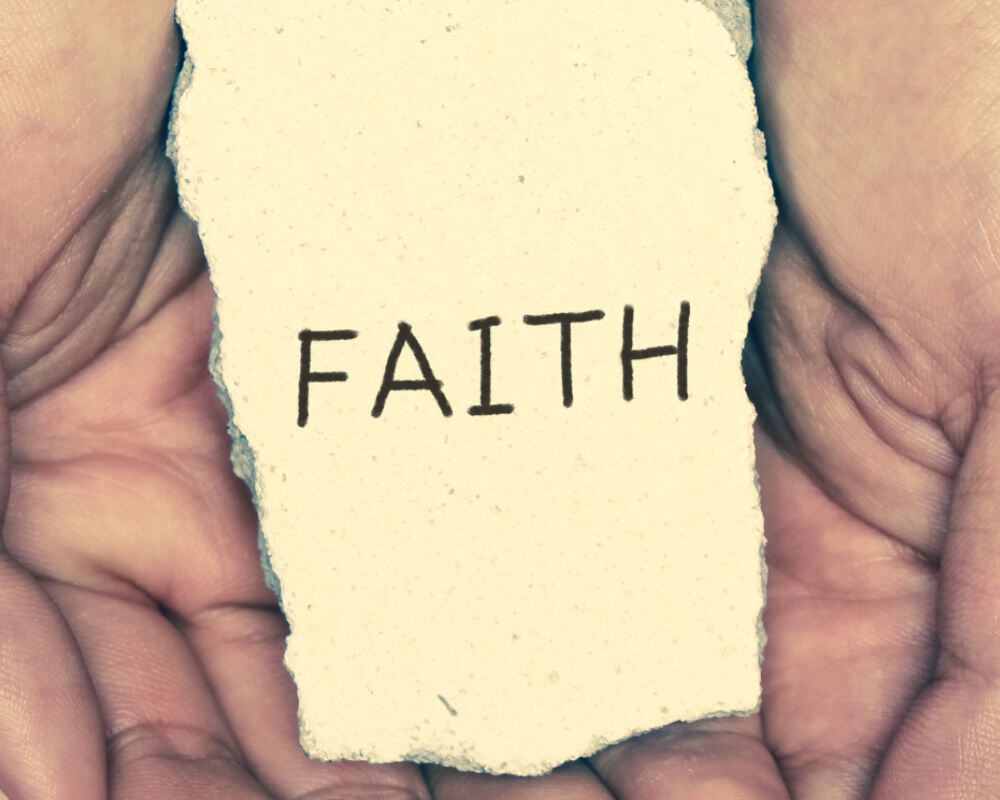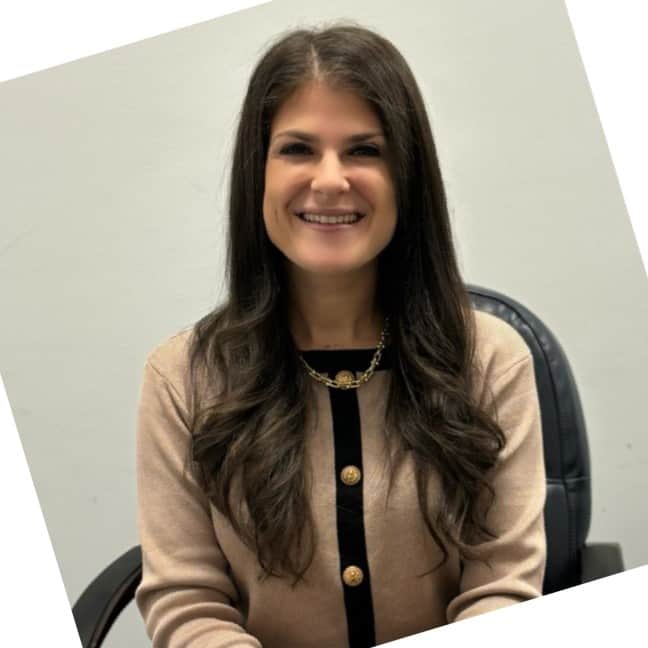Recovery from addiction is an emotional and transformative journey, and for many, faith serves as a critical source of strength and hope. Faith has the power to provide purpose, direction, and the ability to persevere even in the most challenging circumstances.
At Right Path Rehab, we deeply value the role faith plays in recovery, creating a space where spirituality and evidence-based practices come together to foster holistic healing. Faith is not solely about religion; it is a belief system that connects us to something greater than ourselves. For some, this may involve traditional religious practices, while for others, it may mean spirituality, mindfulness, or even the trust in the ability to change. This diversity allows faith to be a universal pillar of support in recovery, guiding individuals toward renewed purpose and a fulfilling life.
The Role of Faith in Recovery
Faith provides more than just spiritual guidance; it can act as a cornerstone of emotional resilience, personal growth, and community connection. Those in recovery often find that faith offers them hope and strength in ways that no other resource can.
Faith as a Source of Hope
Addiction often leads individuals to feelings of hopelessness, where the future appears bleak and unattainable. Faith serves as a beacon of light during these dark times, reminding individuals that transformation is not only possible but within their reach.
Believing in something greater than oneself can inspire individuals to take steps forward, even when progress feels slow. Whether it’s faith in a higher power or simply faith in their ability to recover, this hope fosters determination and optimism, key factors in long-term sobriety.

Strength During Life’s Challenges
Recovery is rarely a linear process. The journey is often marked by setbacks, obstacles, and moments of doubt. Faith acts as an anchor during these tumultuous times, offering stability and encouraging perseverance.
By turning to their faith, individuals can find the inner strength to confront cravings, manage stress, and face the challenges of rebuilding their lives. Faith reminds them that they are never alone in their struggles, providing comfort and encouragement.
Rediscovering Self-Worth
One of addiction’s most damaging effects is its impact on self-esteem. Feelings of guilt, shame, and unworthiness often plague those in recovery, creating barriers to healing. Faith helps individuals view themselves through a compassionate and forgiving lens, reminding them of their inherent worth.
This renewed sense of self-worth allows individuals to let go of the past and focus on their potential for growth. Faith provides the foundation for self-forgiveness, empowering them to build a life of integrity and purpose.
Building Community and Connection
Recovery is not a solitary journey. Faith-based programs often emphasize the importance of fellowship and mutual support, fostering relationships that provide accountability and encouragement.
Being part of a community that shares similar beliefs and goals helps individuals feel less isolated. These connections strengthen their resolve to stay on the right path, as they draw strength from the collective faith and determination of the group.
Faith-Based Approaches to Recovery
At Right Path Rehab, we recognize that faith is a deeply personal and transformative aspect of the recovery journey. Our faith-based rehabilitation program is centered on the conviction that addiction treatment must be grounded in the healing power of faith. By rebuilding your relationship with God, we believe you can overcome substance disorders.
Our program includes:
- Spiritual Counseling: Our faith-centered counselors guide clients in exploring how their beliefs can strengthen their recovery and provide emotional resilience.
- Prayer and Meditation Sessions: We dedicate time for reflection, helping individuals connect with their higher power or inner self, and fostering clarity and peace throughout the recovery process.
- Faith-Based Support Groups: Programs such as Celebrate Recovery allow clients to connect with others who share similar values and goals, building a sense of community and accountability.
- Holistic Practices: Incorporating activities like yoga, mindfulness, and journaling supports spiritual and emotional balance, aiding clients in processing emotions and strengthening their faith connection.
- Life Skills and Purpose-Building: Workshops and counseling focus on instilling qualities like forgiveness, gratitude, and empathy, empowering individuals to rebuild their lives with integrity and purpose.
By integrating these spiritual practices with evidence-based treatments, we address the physical, emotional, and spiritual aspects of addiction, ensuring a comprehensive and effective healing process tailored to each individual’s unique beliefs.

Embracing Spiritual Practices
Faith-based recovery fosters practices that nurture the spirit and provide meaningful opportunities for reflection, growth, and connection. These spiritual elements serve as a foundation for individuals to deepen their recovery journey while aligning with their personal beliefs.
Prayer and Meditation: Connecting to Peace
Prayer and meditation are powerful tools for spiritual connection, offering individuals a way to engage with their higher power or inner self. These practices create moments of clarity and serenity, allowing individuals to process emotions and feel grounded in the present moment. Meditation, in particular, promotes mindfulness, helping individuals stay focused and manage the challenges of recovery with greater resilience.
Journaling: A Path to Self-Discovery
Journaling provides a personal outlet for exploring spiritual insights and reflecting on the recovery process. Writing about experiences, emotions, and faith allows individuals to track their progress, deepen self-awareness, and gain a clearer understanding of how spirituality is shaping their healing journey. This simple yet powerful practice becomes a tool for growth and introspection.
Faith-Centered Counseling: A Holistic Approach
Incorporating faith into therapy adds an enriching layer of support to the recovery process.
- Guided by Beliefs: Faith-centered counselors collaborate with individuals to explore how their spiritual values can strengthen their recovery. By addressing emotional challenges through a spiritual perspective, therapy becomes a holistic experience that nurtures both the mind and spirit.
- Forgiveness and Gratitude: Counseling sessions often emphasize transformative spiritual principles, such as forgiveness and gratitude. These themes help individuals reconcile with their past, embrace self-compassion, and build confidence in their ability to create a meaningful future.
Faith-based practices such as prayer, meditation, journaling, and counseling provide a comprehensive framework for healing. By integrating these spiritual elements into recovery, individuals can find renewed purpose, inner peace, and the strength to stay committed to their journey.
The Power of Group Support
Faith-based support groups, such as Celebrate Recovery, create an environment of shared understanding and collective growth. These groups offer individuals a space to share their experiences, find encouragement, and draw strength from one another’s journeys.
- Accountability and Fellowship: The bonds formed within faith-based groups provide a source of accountability and motivation, reinforcing the importance of staying committed to recovery.
- Shared Goals: Members of these groups often share common values and aspirations, creating a sense of unity and belonging that is invaluable during recovery.

Holistic Healing for Mind, Body, and Spirit
A faith-based approach to recovery recognizes the interconnectedness of mental, physical, and spiritual well-being. By addressing all aspects of health, individuals can achieve a more balanced and sustainable recovery.
- Mindfulness and Yoga: These practices promote relaxation, self-awareness, and emotional regulation, complementing traditional therapies.
- Nutrition and Wellness: Proper nutrition supports physical health and energy, ensuring that individuals have the strength to focus on their recovery.
The 12 Steps and Spiritual Principles
The 12-step model has long been a cornerstone of addiction recovery, and its spiritual principles align seamlessly with faith-based approaches.
Surrendering to a Higher Power
One of the foundational steps in the 12-step model is acknowledging powerlessness over addiction and seeking help from a higher power. This act of surrender fosters humility and trust, helping individuals let go of control and embrace the guidance of faith.
Accountability and Amends
The process of making amends encourages individuals to take responsibility for their actions and seek reconciliation. These steps promote healing, both for the individual and for their relationships, reinforcing the importance of honesty and integrity.
Spiritual Growth and Reflection
The 12-step model encourages ongoing spiritual development, ensuring that faith remains a central part of one’s recovery journey. This commitment to growth helps individuals stay grounded and focused on their long-term goals.
At Right Path Rehab, we guide individuals through these steps in a way that resonates with their beliefs, ensuring a deeply personal and meaningful experience.
Faith as a Path to Purpose
Faith supports recovery and provides a framework for living a life of purpose and fulfillment. Individuals can create a meaningful future by aligning their recovery journey with their spiritual values.
Strengthening Relationships
Faith encourages qualities such as forgiveness, empathy, and understanding, which are essential for building healthy relationships. Recovery allows individuals to repair and strengthen their connections with loved ones.
Pursuing Meaningful Work
Engaging in work or service that aligns with one’s values fosters a sense of purpose and fulfillment. Many individuals enjoy giving back to their communities or supporting others in recovery.
Cultivating Gratitude
Gratitude is a cornerstone of faith-based recovery, helping individuals focus on the positive aspects of their lives. This perspective promotes emotional resilience and reinforces the benefits of sobriety.
Finding Inner Peace
Faith provides a sense of stability and contentment, helping individuals navigate life’s challenges with grace and confidence. This inner peace allows them to embrace the present moment and look forward to the future.
Faith in Recovery at Right Path Rehab
At Right Path Rehab, we honor the deeply personal and transformative nature of each individual’s recovery journey. Our faith-based recovery program is designed to blend spirituality with evidence-based practices, creating a holistic path to healing that respects and strengthens each client’s beliefs. By integrating faith into the recovery process, we help clients reconnect with their spiritual foundation while addressing the physical, emotional, and psychological aspects of addiction.
We understand that recovery is not a one-size-fits-all process. Each treatment plan is customized to align with the client’s unique faith, values, and personal goals. This personalized approach ensures a comprehensive healing experience, allowing clients to grow and thrive in an environment that supports their journey at every step.
Integration of Evidence-Based Therapies
Faith-based recovery at Right Path Rehab doesn’t rely solely on spirituality—it integrates proven, evidence-based therapies to ensure a balanced and effective treatment plan. We combine methods like Cognitive Behavioral Therapy (CBT), group counseling, and individual therapy with spiritual principles to address addiction’s root causes and provide practical tools for long-term success.
By blending faith and science, we create a treatment approach that is both transformative and grounded. Clients are equipped with the skills to manage triggers, build resilience, and sustain their recovery in a meaningful and fulfilling way.
A Supportive Community
One of the most vital aspects of recovery is connection, and at Right Path Rehab, clients become part of a supportive community that shares their values and goals. This fellowship provides a sense of belonging, encouragement, and accountability, all of which are essential for sustained recovery.
Through group therapy and faith-based support networks, clients draw strength from shared experiences and mutual understanding. This community serves as a reminder that they are not alone in their journey and that together, they can overcome the challenges of addiction and rebuild their lives.
Embracing Faith on the Right Path
Faith can transform lives, providing hope, strength, and purpose in the recovery journey. At Right Path Rehab, we integrate spirituality into every aspect of our programs, helping clients heal physically, emotionally, and spiritually.
Faith-based recovery isn’t just about overcoming addiction; it’s about creating a life filled with meaning and fulfillment. By aligning recovery with spiritual values, clients can discover a renewed sense of self and the confidence to build a brighter future.
Start Your Journey Today
If you or a loved one is ready to take the first step toward a faith-centered recovery, Right Path Rehab is here to help. Our compassionate team is dedicated to providing the support, guidance, and resources needed to overcome addiction and embrace a purposeful, faith-filled future.
Contact Right Path Rehab today to learn more about our holistic approach to recovery. Together, we’ll help you find the strength to heal and the faith to transform your life.

